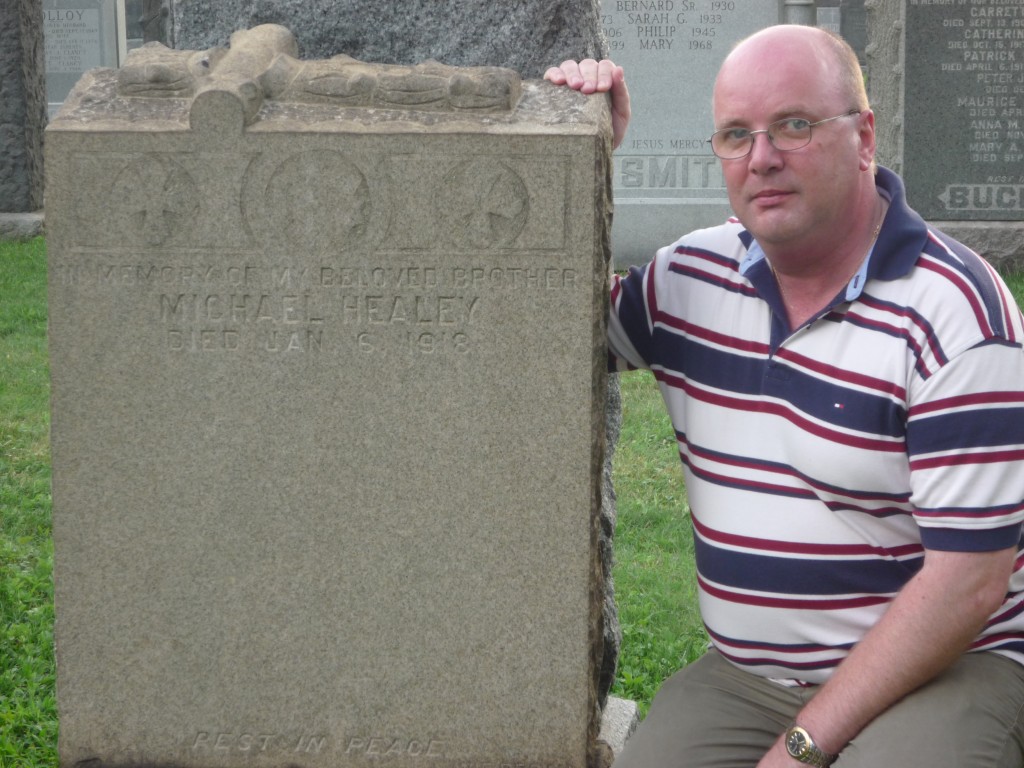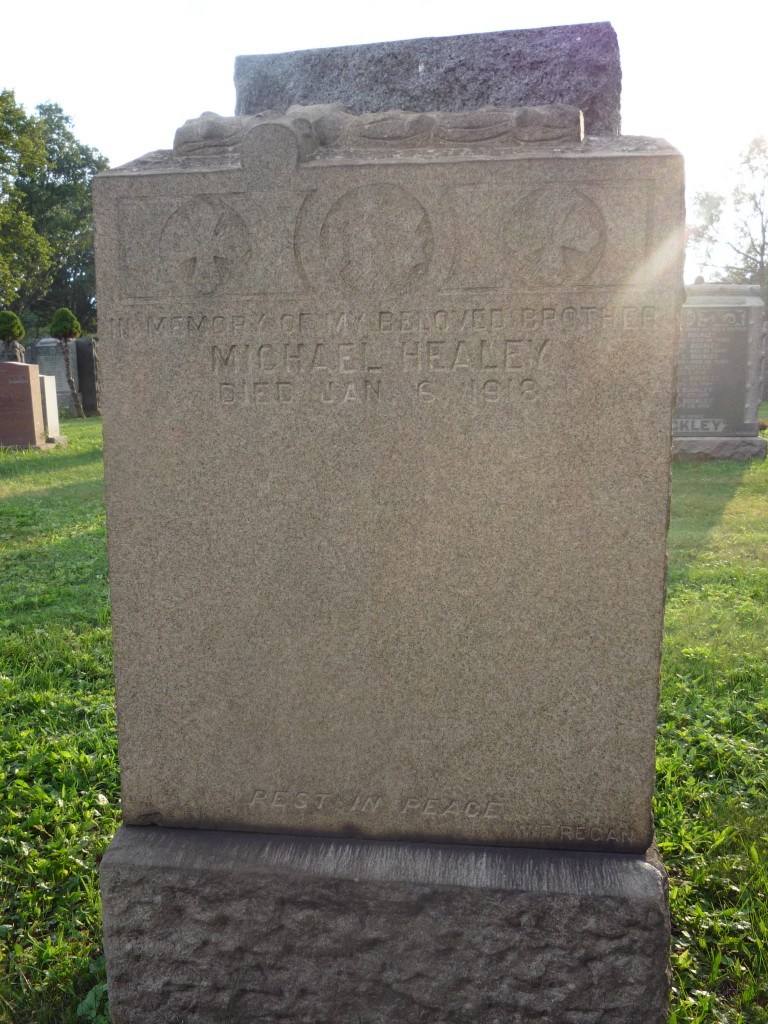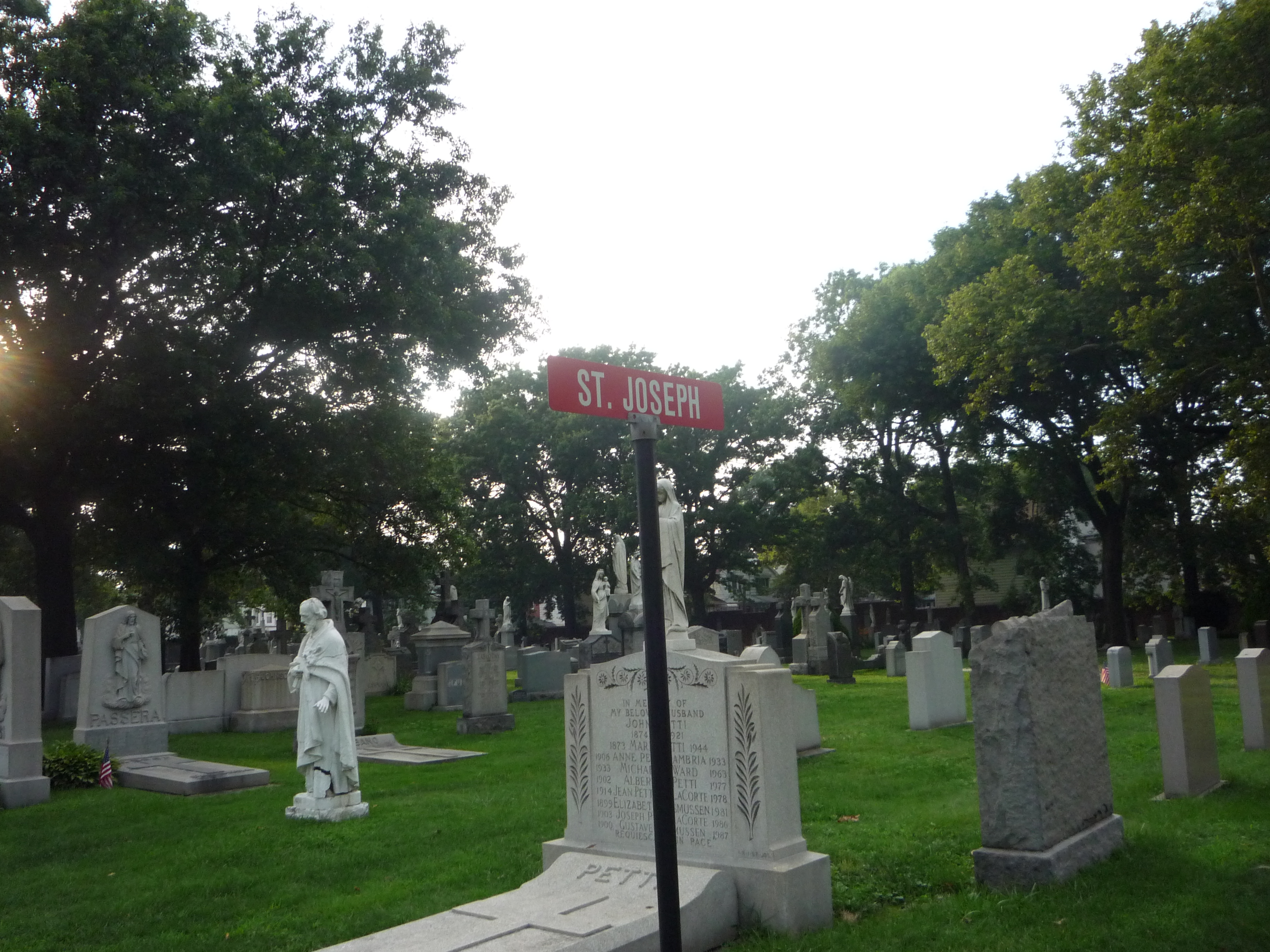I’ve thought a lot about those who have been bereaved in the past number of weeks. I’ve prayed too and hope that people have found some level of peace. It has been a difficult time for everyone but how much more-so for those who have lost loved ones.
During this time I’ve celebrated three Funeral Masses and each time, met the families for the first time at the door of the church when the coffin was carried in for the Funeral Mass. This could not be further from the normal contact we would have around days like these. It all seems so cold and adds to the pain being carried by those who grieve.
Numbers reduced to the minimum for the Mass with those in the church sitting far apart, in some cases the suggestion is two to a seat, sitting at either end. Not even beside each other – so sad. I have been struck many times, through the years, by looking at families in the front seats of the church at funerals and noticing, almost always, someone slipping his or her hand into another’s, or an arm linking without word spoken, the arm of a parent or sibling, husband or wife in a gesture of pure love and support. That can’t happen now, not least with people sitting the length of a seat apart. So sad but, we are told, so necessary too.
I have heard of funerals where family members were not able to attend for fear of contagion. I have seen Funeral Masses on-line with a photo of the deceased left before the Altar and nobody, other than the priest in the church. Heartbreaking.
People have died in other countries and their relatives here, even sons and daughters, cannot travel to the funeral. Likewise for relatives living away when someone dies here at home. Terrible times.
Amazingly people have found ways of offering support, maybe just standing at the side of the road, at a safe distance, or on the footpaths of a town. Others have found themselves writing words “on-line” rather than shake a hand and say “Sorry for your trouble”. The basic goodness of people is and always will be there. Circumstances are all that are getting in the way of goodness.
“Where have you put him?” Jesus asked the sisters of Lazarus, having arrived at their house four days after the death of his friend. Seeing their grief and mourning himself the loss of a dear friend, he asks them to take him to the place where Lazarus is buried. It was an important place and the only place Jesus could go in his grief and the only place where he could truly express that grief. “Jesus wept”, we are told and that remains the most appropriate response to grief. “See how much he loved him”, some commented. That place of burial, even though on that occasion, Lazarus was brought from it, remains the point of contact between Jesus and one who has died.
There are many, myself included, who will visit graves of people who have died in recent weeks. We may well have to ask the question Jesus asked that day: “Where have you buried him/her?” “Come and see”, they said that day and we will come and see. We will shed a tear too and, with Jesus, pray for the friends and relatives who have died.
That is why the “where” is so important. We need some place to connect with those gone before us. Names engraved on headstones or memorials bring us to be with one who has gone before us. It is only when we find the “where”, that we can, in some manageable way, come to terms with what has happened and we hear again those lines from Danny Boy: “and if you kneel and tell me that you love me ……”, having said “an Ave there for me”.
A few years ago I visited a grave in Brooklyn New York. I’ve mentioned it here before. It was a “where” I knew nothing about and a “who” as well. My aunt told me that my grand-uncle had died in that other great and life-robbing pandemic, the 1918 Flu or “Spanish Flu” that infected more than 500 million people worldwide and led to 50 million deaths. He was one of them – a “statistic” and I never knew he lived. She did. She told me he was buried in “Holy Cross Cemetery, St Joseph’s Section, Row 19 plot number 131/132”. I visited there in 2009 and again in 2018, one hundred years after his death.

My aunt had a small piece of paper that her husband, my uncle John, had given her and it had the “where” of my grand-uncle’s grave. The how was another story. His sister, my grandmother, lived in New York the same time as her brother and when he died she arranged for his burial and the erection of a headstone. Later, she returned to Ireland with the intention of going back to New York but she never did. She met my grandfather and they married. She kept the piece of paper though – the “where” and it ended up with her son, my uncle. He visited the grave and so did I. It’s likely we are the only two of his family that ever got the chance but I’m glad I did and, with God’s help, will visit again.

“Where have you laid him?”

So the where remains important. In remembering all who have died in recent weeks and months, we pray that there may be a where and an ongoing possibility for their loved ones to come to a place, that reminds them of the lives lived and the differences made by those whose names are engraved in stone.

May they all rest in peace. Amen.



Thank you Fr Sherlock for those words. Originally from the parish, Cloonamna now living in Sussex. We too are in the awful situation of a very close friend, close & loved as a family member who died on Fri night having lost his fight with C-19. A young man of 44, Godfather to our eldest son. The inability to be with his wife, and the many who knew and loved him is so so difficult. Unable meet to talk, share memories, laugh & joke and have the craic as we so often did and hug, a hand on the shoulder or just a caring glance. Difficult, difficult time. I hope there will be a where. Take care, God Bless, thanks & stay safe, Paul O’Donnell.
Paul, so sorry to hear this. May he rest in peace. Not least the peace of knowing he mattered so much and is missed by so many. Will include him in our prayers at Mass today.